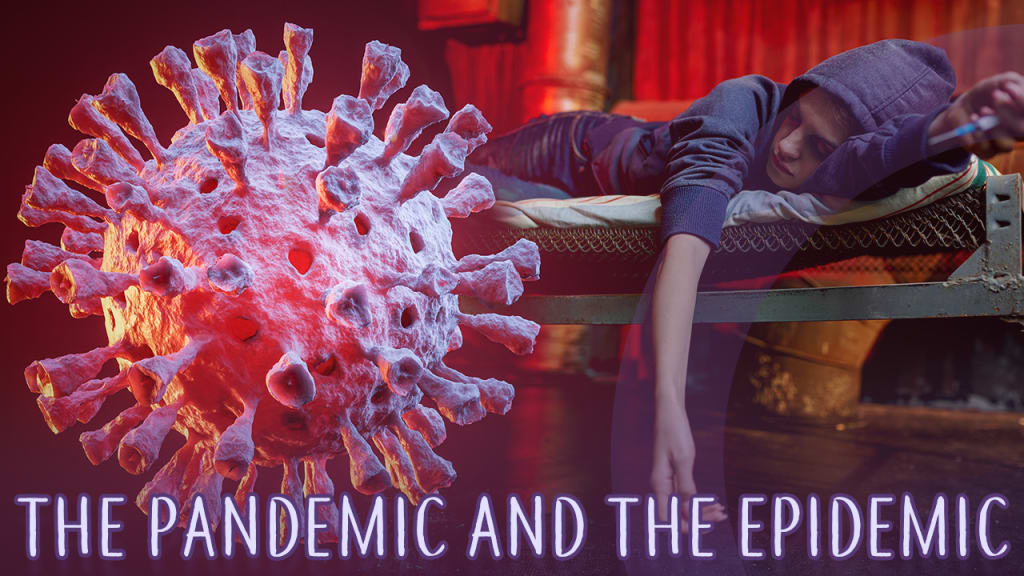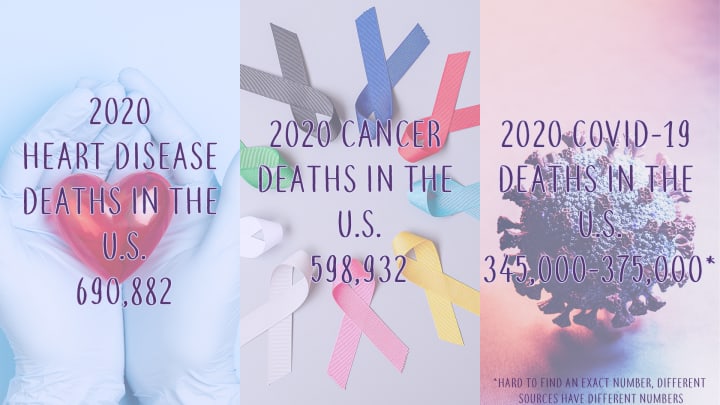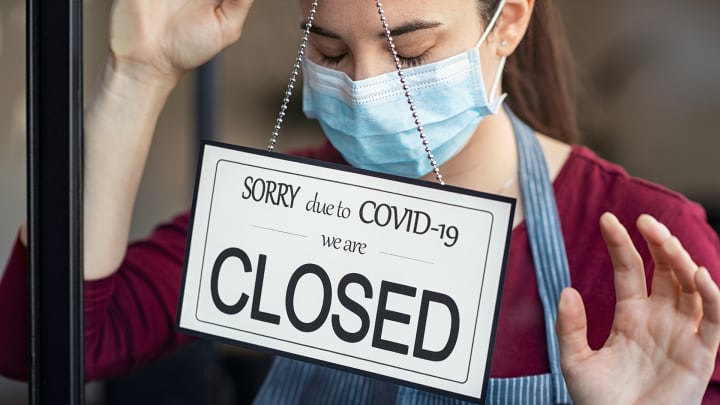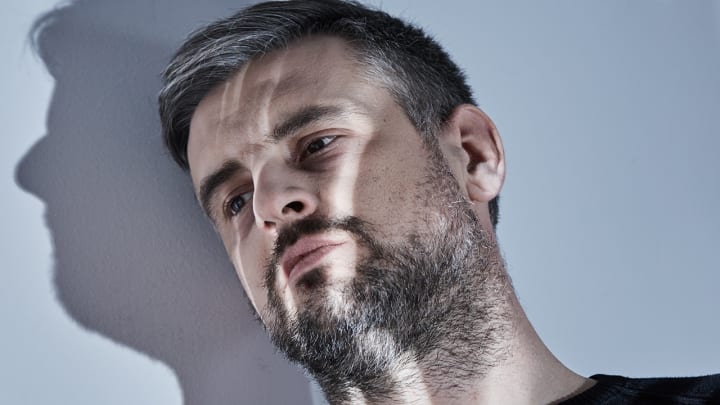Is Covid-19 The Ultimate Gateway Drug?
The hidden epidemic in the pandemic

There were about 3.3 million deaths in the United States in 2020. Covid-19 was the third leading cause of death, only behind heart disease and cancer, taking the lives of about 345,000 people.
There was another deadly epidemic working alongside it. An epidemic that has been around long before Covid-19 reared its ugly head. It's an epidemic that has taken over 900,000 lives since 1999. It's an epidemic that no mask, no vaccine, no lockdown is going to stop.
That epidemic is the opioid crisis.

The Impact
During 2020 most states and cities reported an increase in both non-fatal and fatal overdoses. As matter-of-fact fatal overdoses increased in every state with the exception of New Hampshire and South Dakota
There was an increase of at least 30% in twenty-four states and the District of Columbia.
Furthermore, Arizona, California, Colorado, Illinois, Texas, and Washington had an increase of more than 35% during the first eight months of 2020.
Overall the United States had a 33% increase in overdose deaths.
To help put this in perspective there were fewer than 7,200 overdose deaths in 1970 during the height of the heroin epidemic and around 9,000 in 1988 during the height of the crack epidemic.
Then in 2019 the opioid epidemic helped take the lives of 70,630 and that number went up by over 30% in 2020 to 93,331 overdose deaths.
That's about 250 deaths per day or eleven every hour.
93,331 that's a 1,200% increase from the deaths of the heroin epidemic in 1970.
93,331 is almost double the number of American lives taken during the Vietnam War.
About 75% of the overdose deaths in 2020 involved opiates, largely down to Fentanyl laced substances.

What caused the spike?
So what caused the spike in overdose deaths in 2020?
Several experts say isolation was a major contributor. Many users and former users have backed this claim up too. For example, one user named Arman was quoted as saying “I know a lot of people who had made progress in their recovery, then relapsed. Being alone and isolated in your living space without any reason to leave the house is enough for someone struggling with addiction to relapse and dig themselves into a hole.”
While quarantining and self-isolating was arguably important for public safety, isolation can influence anxiety and depression. Carla, a psychiatrist at UC San Diego Health, summed it up by saying “People can’t be around friends, go outside to gyms and restaurants, all of those everyday activities that might mitigate anxiety and depression. Addiction thrives in secrecy and in the pandemic, you have more people alone and not accountable to friends and family.”
This is even backed up by the CDC who said approximately 75% of young adults experienced some form of mental symptom within the first three months of the pandemic restrictions with over 25% of them seriously contemplating suicide.
The pandemic restrictions made the opioid crisis worse and escalated overdose deaths in several ways.
Firstly, the stay-at-home orders lead people to use drugs alone, something that is always dangerous because if they overdose alone, there's no one there to administer Naloxone or to call 911 for help.
The lockdown also made treatment harder to get because some treatment centers shut down, some of which shut down for good due to budget cuts.
Twelve-step programs also shut down.
Recovery meetings went virtual, yet as Tim, the director of the Berkeley Day Report Center said “Addiction makes you want to be alone. A large part of recovery is establishing a face-to-face connection — in person, not on a video.” He continued by saying “For the large majority of this population, in my opinion, the Covid restrictions — everything shutting down — is far more dangerous than Covid.”
A great example of this is Collin M. who lost his brother Jordan to a heroin and fentanyl overdose on the day before Jordan's 39th birthday. Collin said this about his brother's death “It was really difficult for me to think about the way in which Jordan died. He was alone, and suffering emotionally, and felt like he had to use again.”
To give a great example of the lockdown's impact on overdoses you have to look no further than San Francisco, which was the first city in the United States to declare a CoronaVirus emergency in February of 2020, weeks before any other major city in the United States.
As a result, San Francisco only had 257 deaths from Covid-19 in 2020, which was one of the lowest per-capita Covid-19 death rates in the nation. On the flip side of that, however, there were 697 accidental drug overdose deaths in San Francisco in 2020. Just shy of triple the Covid deaths. To put that in context. There were 259 overdose deaths in 2018 and 441 overdose deaths in 2019.

Other factors
The pandemic is not the only thing to blame though.
As already stated; 75% or 69,710 of the overdose deaths in the United States in 2020 were from opiates, largely due to fentanyl-laced substances. Much of this is down to the fact that suppliers and dealers are increasing their supply of heroin and other substances, including fake prescription pills by lacing it with fentanyl because it is cheaper to produce. This is really dangerous for anyone who's using those substances because most people don’t have a tolerance for fentanyl.
One pill, one “hit” can kill someone. It has happened. Many times.
While the stress of the Covid-19 pandemic hit everyone, the added stress of isolation, job loss, financial stress, and psychological uncertainty took a huge toll on those in recovery, even those that had been in recovery for years. As Megan M., a case manager with Prevention Point Philadelphia said “The pandemic may be the ultimate gateway drug.

Relapses
Many of the overdose deaths in 2020 can likely be down to the fact that so many people relapsed and tried to use the same amount as before, as well as the fentanyl-laced substances.
Many people relapsed too. One woman told Rolling Stone that she had not seen so many people in New York relapse since the 9/11 attacks in 2001.
Simon R., who relapsed in 2020 said “I relapsed because I found myself thinking about life after the lockdown and I felt like I couldn’t imagine a future in which I could be happy. Now, I can’t imagine a future in which I’m not miserable. I’m afraid, and I just don’t know how to change it.”

Looking to the future
We must now ask ourselves; Will the end of 2021 bring with it another huge increase in overdose deaths in the United States?
I certainly hope not but with the rising deaths related to fentanyl and the recently released numbers by the CDC indicating that 96,779 died of overdoses between March 2020 and March 2021 it really wouldn't surprise me. At this point, it wouldn’t surprise me if we had a number as high as 105,000+ at the end of 2021.
Boy, I hope I’m wrong.
-
If you'd like a better understanding of why overdoses occur, please check out my article on the subject: Why People Overdose
Also, if you have found any value in the article, please consider hitting the heart, subscribing to read my future articles, and leaving a tip, all of which would be greatly appreciated. If you know anyone that would find the information in this article valuable, please share it with them. Thanks so much for reading.
About the Creator
Randell Gresham
I am a father and a husband that is working to better himself. I am currently working as a manager at a fast food restraunt but working towards my real estate licence to make a better life for my family and to help others.






Comments
There are no comments for this story
Be the first to respond and start the conversation.